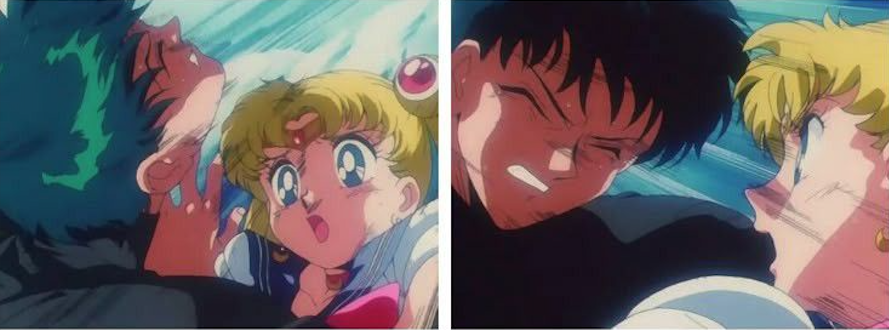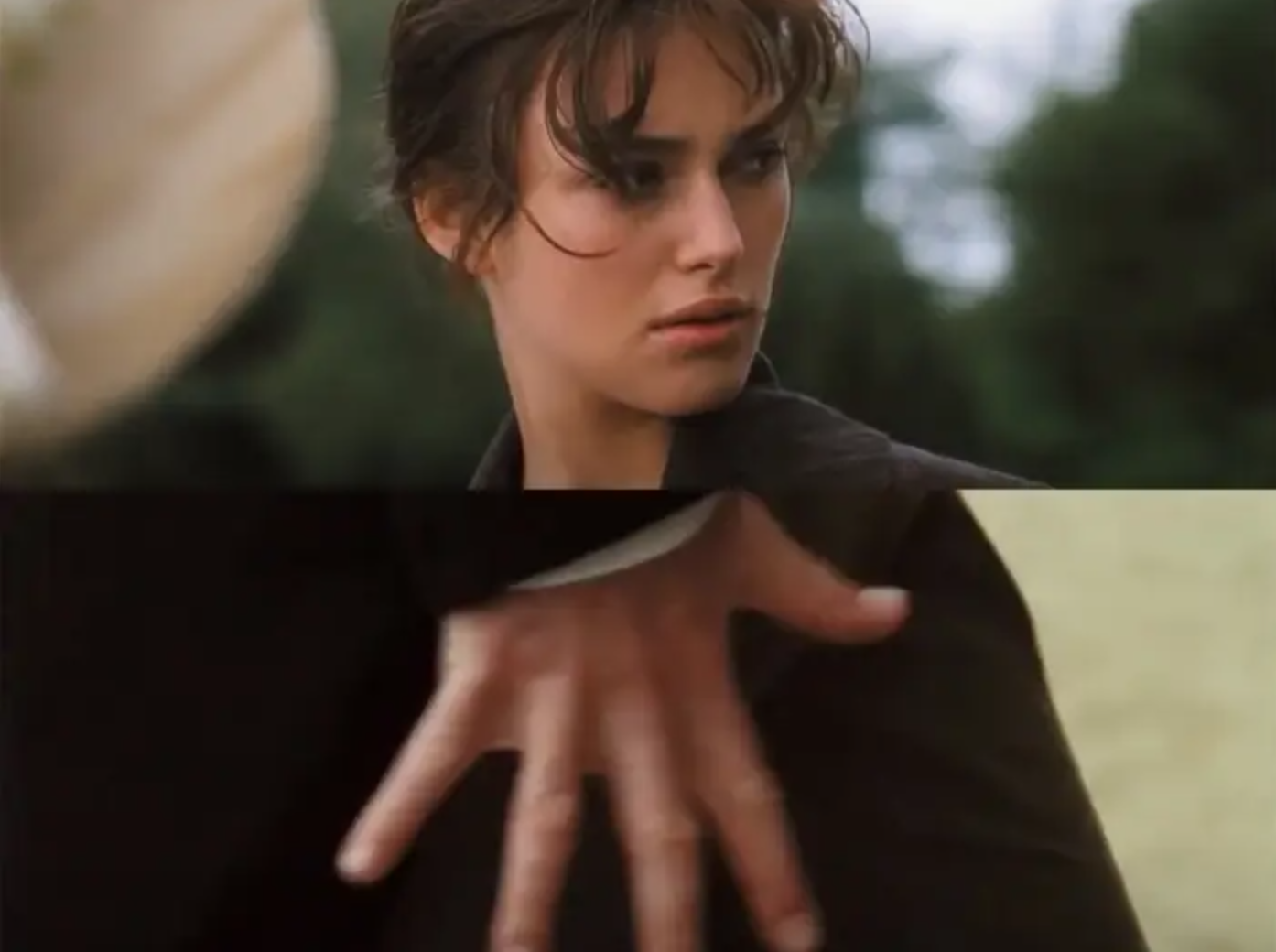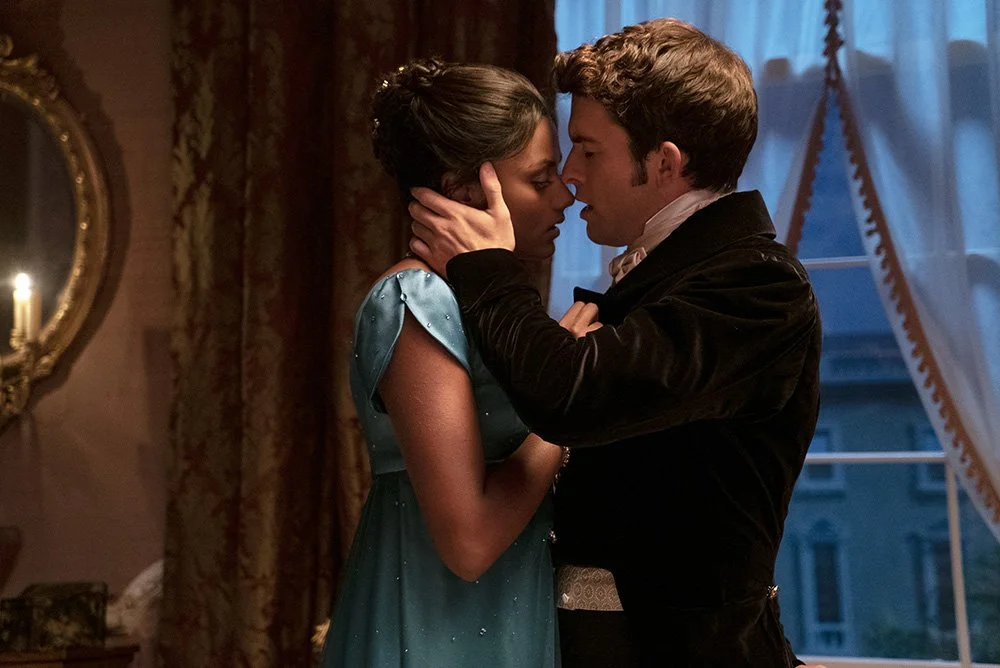The Myth of The Rational Suitor: Why We Romanticize Brooding Men
From the moment I watched Mamoru shield Usagi in Sailor Moon to the first time I read about Mr. Darcy’s awkward proposal, my romantic ideals were shaped by men who seemed unreachable—until they weren’t.
Usagi and Mamoru in Sailor Moon, Season 2, Episode 3: “True Love Awakens: The Makai Tree’s Secret.”
As a young girl—and now as a woman—I’ve been deeply influenced by this archetype: handsome, brooding, and so emotionally constipated that nothing short of therapeutic Miralax could make them budge. More often than not, all it took was spending enough time around the heroine for them to finally crack open and explode into a sonnet of longing across the page or screen. Every time, I was hooked. And every time, it was another nail in the coffin of my dating life.
As you might guess, nearly every man I’ve dated has been emotionally stunted—and I was utterly obsessed with them. The one man who wasn’t was, unfortunately, the only one I couldn’t bring myself to like, even though he was objectively a far better romantic partner.
Myself and countless other girls, gays, and theys have spent our formative years stitching together an idea of what our romantic partners should be. Many of us have ended up with a vision of a partner who can only be emotionally authentic after an exhausting struggle.
We’ve plucked countless daisies, asking if he loves us or not, or folded cootie catchers to divine whether they liked us back—not because they ever said or did anything to show it. The allure was in the not knowing, in the almost imperceptible flinch of a hand, the half-second of hesitation. That was what drew us in. That’s where we found ourselves chasing our idea of a romantic dream.
And why was that?
Love should be easy to spot, but we’ve all read enough literature and watched enough films to know that isn’t always the case. While we, the reader and viewer ,can see the truth from the start, our heroine remains in the dark– until she isn’t. And we buy it every time.
I’ve often wondered why this pattern feels so compelling. Why do we admire a love story where emotion is disguised as indifference, and affection has to pried loose like a secret?
Maybe it’s because we have been taught to see restraint as a sign of depth. A romantic partner who doesn’t declare their feelings too easily must be principled, thoughtful, even superior to the more obvious suitor. Their silence and distance becomes proof that their emotions, once revealed, are more meaningful because they were so carefully hidden. And this is your rational suitor.
The Rational Suitor is an archetype of romantic storytelling: a man who appears calm, restrained, and emotionally self-contained— sometimes to the point of seeming cold, superior, or aloof. He withholds affection behind a facade of logic, pride, or detachment, making his true feelings difficult to read. His love is never offered freely at first, but must be earned through the heroine’s patience, intuition, and his own emotional turmoil and emotional death. When he finally confesses or reveals his vulnerability, it feels like a transformative victory, affirming the idea that real love is proven by overcoming distance and reserve. He has been known to us in other forms: the Bryonic hero, the strong, silent type, the stoic protector. Whether he is dressed in Regency breeches, a modern suit, or fantasy armor, he is always the same: a man who is an emotional wall, impenetrable except for the most arduous of wars: love.
This is the myth of the rational suitor: the idea that real love is not spontaneous but earned through patience and intuition. The heroine must decipher every glance and hesitation, doing the quiet work of uncovering what he won’t say. His eventual confession becomes a kind of reward, confirming that her devotion and insight have made her worthy of his guarded heart.
The famous hand flinch, Pride & Prejudice, 2005
It’s a story that flatters both characters- the man is elevated as a rare and difficult to reach, while the woman is celebrated for her ability to reach him. And over time, we’ve learned to believe that this dynamic is not only romantic but aspirational.
We didn’t create this myth in a vacuum. The rational suitor is everywhere—from Darcy to Anthony Bridgerton, from Aragorn to Do Ming Joon to every brooding male lead in novels and on our screens. It’s an idea so woven into our cultural imagination that it almost feels natural. Of course the most desirable partner would be the one who refuses to speak plainly or at all. Of course love should be proven by our ability to endure the not knowing. It allows men to coast while women do most of the emotional lifting and toiling. And it sells– massively.
However, the cost of this myth is real. We create a world where emotional honesty isn’t valued till the very end, and in the process, we lose the chance at genuine connection. It teaches us to equate love with uncertainty which is dangerous— the price is our ability to build emotional security in our romantic partners. It normalizes emotional labour as a girls and women's work, leaving girls and women to do the jobs of managing feelings, solving problems, and proving they are worthy of love that should be offered freely. At the same time, boys and men are taught to hide essential parts of their emotional identities, leading to lives that are less fulfilling, less connected, and more isolated. This myth also trains us to see passiveness and withholding as signs of depth, when in reality they are often just fear or avoidance. It sets us up to confuse anxiety with desire, to think that longing is the same as intimacy, and to believe that love must always be hard to feel real. Passiveness and silence aren’t wins for anyone. In the end, they only keep us from the ordinary mutual tenderness we deserve.
Kate and Anthony in Bridgerton, Season 2, Episode 5: “An Unthinkable Fate.”
Don’t get me wrong– I am not saying we should swear off these books, films or shows that involve this trope. God, no! That would be like asking us to give up a limb. However, I think it matters that we examine the stories we love and how they quietly shape what we expect out of ourselves and each other. After all, art that can’t stand up to a little questioning probably isn’t worth our time or devotion.
So as I sit here typing this in a cafe, I am wondering— what do I do next as both a consumer and lover? I think it’s pretty simple. I can keep enjoying these stories with as much glee as ever while also questioning them. I can remind myself that love, as challenging as it is, shouldn’t be a riddle or a conquest where any of us has to prove our worthiness. I can remind myself that love looks best when it is clear, mutual, and offered freely and enthusiastically; which is the kind of story ending many of us are hoping for.



